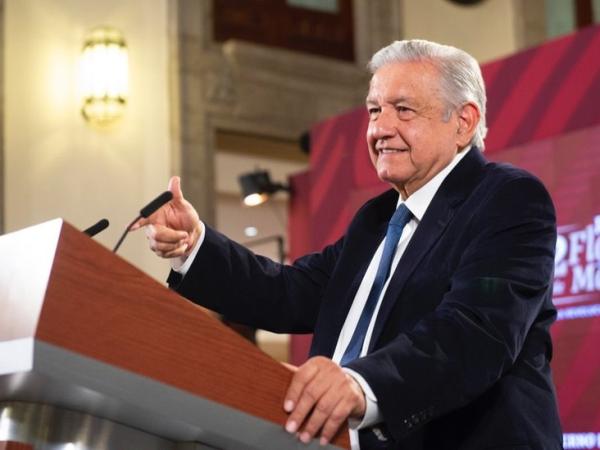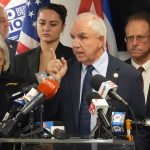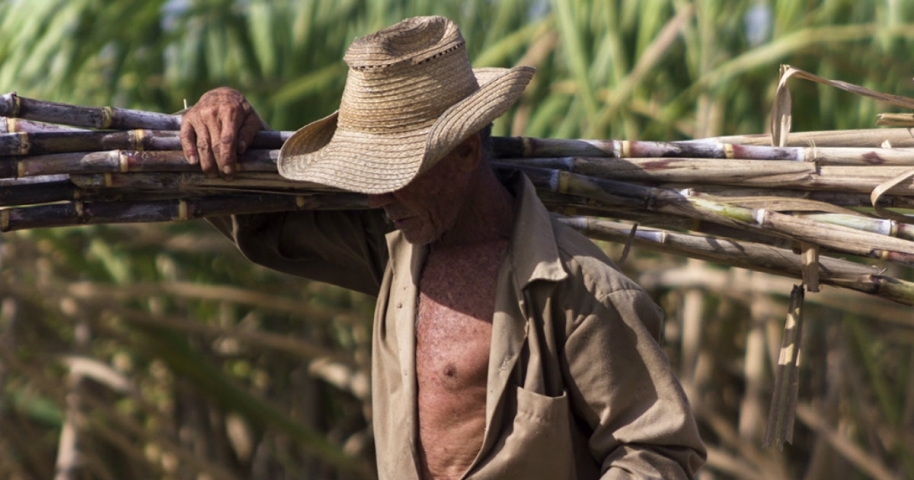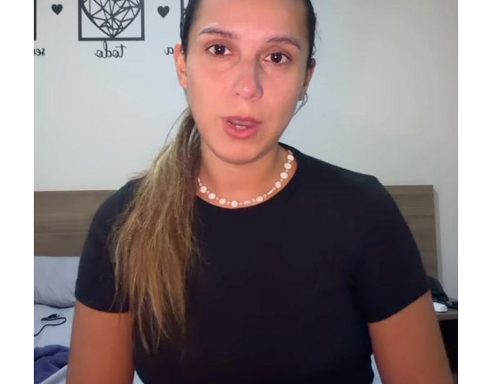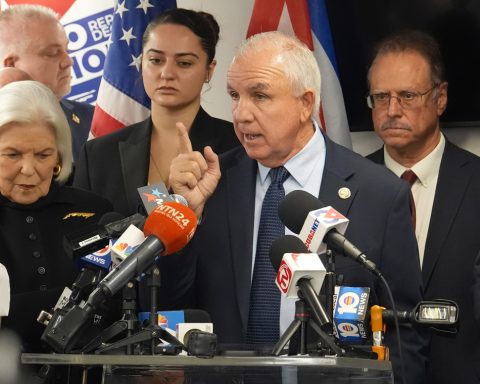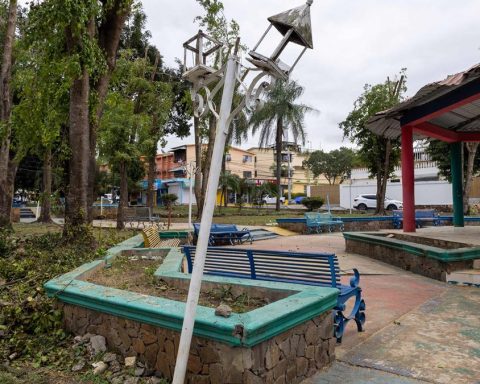One after another, different Latin American countries have elected left-wing governments and a new political wave seems to be sweeping the region.
Since 2018, leaders located on the left of the political spectrum have reached the presidency of Mexico, Argentina, Bolivia, Peru, Honduras, Chile and Colombia.
The phenomenon could be completed in the October elections in Brazil, where the leftist former president Luiz Inácio Lula da Silva has a wide advantage in the voting intention polls.
Although other countries in the region have chosen governments of different political persuasions in recent years, a Lula victory would leave the seven most populous nations in Latin America and its six largest economies in the hands of the left.
For some, all this evokes what happened in the subcontinent during the first decade of this century, when three out of four South Americans came to be governed by leftist presidents.
But there are enormous differences between that “pink tide” that covered Latin America and the current progressive wave, which according to experts runs the risk of being more limited.
a “degraded”
In a context of anger with politicians, inequality and economic stagnation, the vote of Latin Americans in recent times has been pendulum: from left to right and now to the left again.
The rule in free elections in the region is the victory of the opposition.
“The important thing is to change sides to see if things improve, because the degree of discontent in Latin America has never been higher than it is now,” says Marta Lagos, director of the Latinobarómetro regional opinion poll, to BBC Mundo.
“Ideology is becoming less relevant in elections every day,” he adds. “People have been crowding into the political center (and) to the side that the center voters lean, they give victory to the rulers.”
One thing leftist candidates in the region have in common — and appears to help them attract those crucial centrist votes — is their greater emphasis on state action to decrease economic inequality.
Previously, the presidents of the left distinguished themselves by being more radical, like the Venezuelan Hugo Chávez, or moderate, like Lula or the Chilean Michelle Bachelet.
The rulers of the new wave are much more heterogeneous.
Lagos divides them into four different types of left: new (where he places the elected presidents in Chile and Colombia), populist (Mexico), traditional (Argentina, Bolivia, Honduras) or dictatorial (in his opinion Venezuela, Nicaragua and Cuba, where They have been in power for years.
And today some leftist leaders seem more willing than in the past to distance themselves from others in the region.
Before being elected president of Chile, Boric criticized the repression of dissidents in Cuba and Nicaragua and, after his electoral victory, told BBC Mundo in January that “Venezuela is an experience that has rather failed.”
The Venezuelan president, Nicolás Maduro, spoke in February of “a cowardly left”, something that many interpreted as a response to Boric.
Meanwhile, the elected president of Colombia, Gustavo Petro, has called Maduro a “dictator”, although he is preparing to reestablish relations with his government.
Heinz Dieterich, a German sociologist who coined the concept of “21st century socialism” to which Chávez later referred in 2005, rules out that this expression can be applied today to what is happening in countries in the region such as Chile, Argentina or Bolivia.
“None of these governments wants the socialism of the 20th century, which is the socialism of Cuba,” Dieterich tells BBC Mundo. “But they also don’t want a 21st century socialism because that means overcoming the market economy and having a strong state that can control the corporations.”
Perhaps the biggest difference between the leftist wave of yesteryear and the current wave in Latin America is the setting in which they emerge.
Between 2000 and 2014, the international boom in raw materials gave the presidents of the region a fat wallet to invest in social programs and statist projects of all kinds.
This in turn consolidated broad political-electoral support with legislative majorities for the governments, which achieved reforms and re-elections everywhere.
Former presidents such as the Ecuadorian Rafael Correa, the Bolivian Evo Morales and Chavez himself came to modify the constitutions of their countries and exercised different consecutive mandates.
Now, with a war in Europe, rising inflation and rising prices for both credit and inputs, the region’s economies are finding it more difficult to take advantage of rising commodity prices.
And governments can spend much less than their citizens want in times of covid pandemic and social unrest.
“Implementing policies on the left with a lot of money is one thing; now they won’t have those resources,” compares Marcelo Coutinho, a professor of international politics at the Federal University of Rio de Janeiro (UFRJ) and an expert on Latin America.
And he points out that to this are added “political limits and a much more fierce and organized opposition to the right, with which it is difficult to establish a dialogue at times.”
In Peru, the leftist president Pedro Castillo maintains a pulse with Congress, which is investigating an alleged case of corruption in his government.
And in countries like Chile or Colombia, the social unrest of 2019 that contributed to the rise of the left reflected a political volatility that can now turn against the new presidents, analysts warn.
“There are processes of growing instability that may explode in the coming years,” Coutinho tells BBC Mundo. “That is also going to be a complication that will make the lives of these rulers very different.”
On the other hand, both Boric and Petro raise flags such as caring for the environment or gender and race equality with more force.
The young Chilean president announced this month the closure of the state copper smelter Ventanas to stop “recurring cases of intoxication”, which marks an important change in environmental policy in the country.
And Petro has promised something even more ambitious: accelerating the energy transition from the extractive industry to a “decarbonized” economy, despite the fact that oil is a key source of income for the Colombian state.
This contrasts with the agenda of old “pink tide” leaders, from Chavez to Lula, who made oil exploitation a priority.
In fact, the differences persist: Lula recently said that Petro’s idea of creating an anti-oil bloc with progressive regional leaders is “not real” in this world.
Other leftist presidents such as the Mexican Andrés Manuel López Obrador and the Bolivian Luis Arce are also betting on extractive industries.
However, perhaps in this the new policy that Boric and Petro are proposing today is better in tune with society than the old policy, suggests Lagos.
“There is an environmental awareness in Latin America,” says the director of Latinobarómetro. “Then any policy that is environmentally correct is going to have great support from the population.”
Now you can receive notifications from BBC World. Download the new version of our app and activate it so you don’t miss out on our best content.
